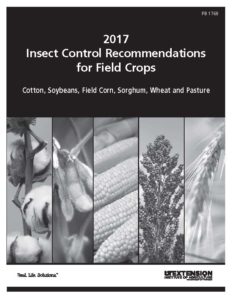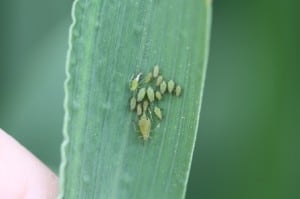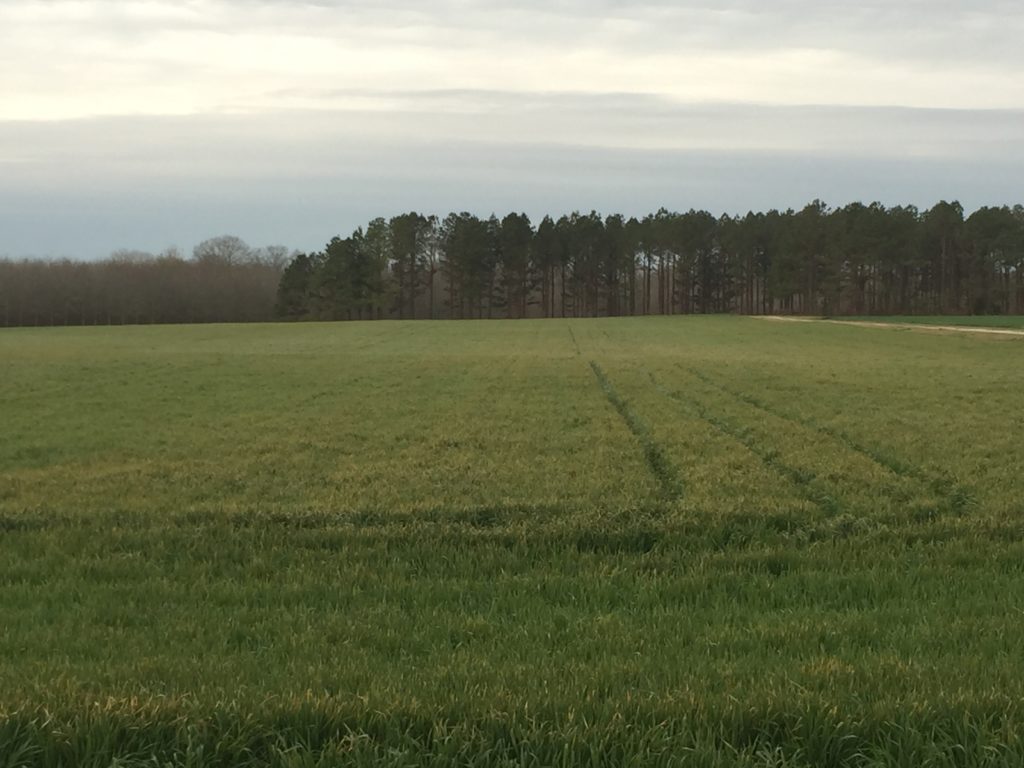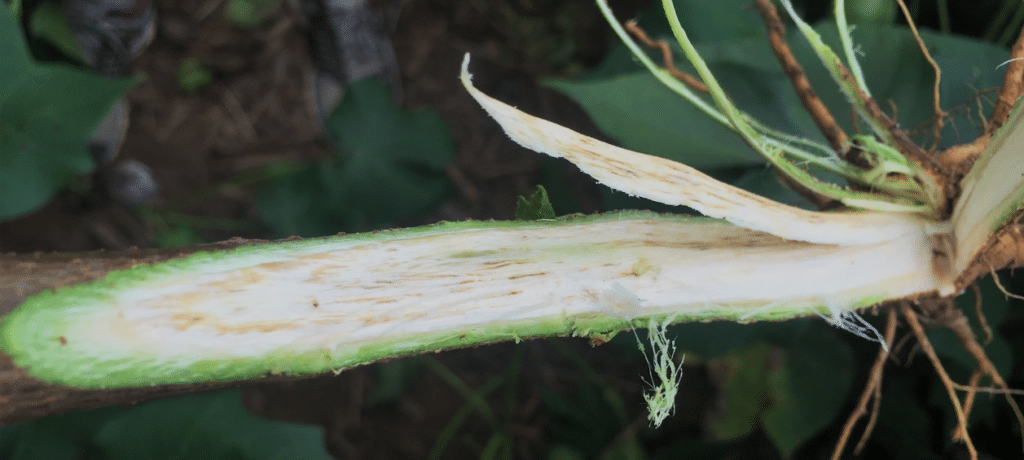It will be the end of next week (March 24) before we can tell how badly the wheat was injured from the cold temperatures this week. Of course, a decade ago we had a similar cold spell that many folks refer to as the Easter freeze. Back then some fields were destroyed and replanted to other crops while others were kept and went to yield. Then as now when making this decision the herbicides that have been applied to the wheat must play a factor in how to proceed. Continue reading
Category Archives: Wheat
Freeze damage to jointing wheat
For much of Tennessee’s wheat, the cold front which moved through Saturday (March 11th) dropped temperatures near the danger zone. Jointing typically does not occur until late March but our mild winter has allowed much of the timely planted wheat to mature faster than normal. Much of our wheat is between Feekes stages 7 and 8. In the below image, the growing point was located near the knife blade. Wheat becomes considerably less tolerant to cold temperatures after the growing point leaves the base of the plant. Continue reading
Verticillium Wilt in Tennessee Valley Cotton
The new publication, “W 403: Verticillium Wilt in Tennessee Valley Cotton” provides background on Verticillium wilt, summarizes recent variety trial results, and highlights other practices that can reduce the impact of the disease. Continue reading
Tennessee Grain & Soybean Producers Conference
The 2017 Tennessee Grain & Soybean Producers Conference is being held at the Dyer County Fairgrounds in Dyersburg, TN on Thursday, February 2nd. On-site registration begins at 7:45. The programs ends after lunch following the Keynote Address by Harrison M. Pittman, Director, National Agricultural Law Center (University of Arkansas System Division of Agriculture) on “Ag Law Update: Recent & Emerging Issues for the Ag Industry”. Preliminary Agenda (updated)
2017 Middle TN Grain Conference
The twelfth annual Middle Tennessee Grain Conference set for Thursday, January 26 at Coffee County’s Fairgrounds in Manchester offers farmers insight to a number of emerging corn, soybean, and wheat production concerns. The conference is scheduled to get underway with registration beginning at 7:30 am. Registration is $20 at the door or $10 if participants pre-registering by Noon, Monday, January 23 through their local UT Extension office. Registration fees include the program and materials, refreshments, lunch, a copy of the conference proceedings, and a grain conference cap. View Program
2017 Insect Control Recommendations for Field Crops
 The University of Tennessee’s 2017 Insect Control Recommendations for Cotton, Soybean, Corn, Sorghum, Wheat and Pastures (PB 1768) is now available online. Once available, hard copies will be distributed at Cotton Focus, grain conferences, and other crop production meetings.
The University of Tennessee’s 2017 Insect Control Recommendations for Cotton, Soybean, Corn, Sorghum, Wheat and Pastures (PB 1768) is now available online. Once available, hard copies will be distributed at Cotton Focus, grain conferences, and other crop production meetings.
Some features you may have overlooked in the back of the book include:
- Listing of insecticide classes (mode of action) and registration numbers
- A list of common “generic” trade names for various insecticides
- Tables ranking the relative efficacy of insecticides on common pests
- Tips to minimize pesticide effects on pollinators
Do you have aphids in your wheat?
 If you managed to get a good stand of wheat, make sure you scout closely for aphids. There’s a good bet we will have more aphids than usual this fall because of the warm weather. It you are managing for high yielding wheat, then protecting wheat from transmission of barley yellow dwarf virus (BYD) is important. Below are a couple of points to consider. Continue reading
If you managed to get a good stand of wheat, make sure you scout closely for aphids. There’s a good bet we will have more aphids than usual this fall because of the warm weather. It you are managing for high yielding wheat, then protecting wheat from transmission of barley yellow dwarf virus (BYD) is important. Below are a couple of points to consider. Continue reading
UT Commodity Market Update 10/14/2016
Corn: The latest WASDE report was released this week along with the Crop Production report. The USDA has decreased the national corn yield by 1 bushel per acre from 174.4 to 173.4. If the final yield does equate to this value, then this will be the largest corn crop on record. Despite the expectations of a very large corn crop, December corn futures have increased by $0.15 since the market’s open on Monday. In fact, corn closed at a three-month high, which is uncommon, especially during harvest. Local corn basis has continued to remain stable over the past week.



